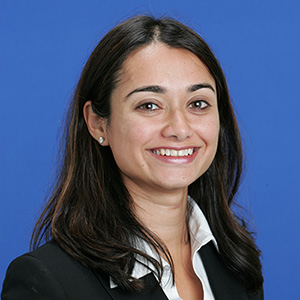Mariam Rafi is global head of futures, clearing and FX prime brokerage product at Citi, where she has worked for 11 years. Prior to being appointed to the global role in 2021 she was the Americas head of clearing and FX PB.
Rafi started her career at Deutsche Bank, where she spent a number of years as a credit derivatives structurer and trader, and then, after the financial crisis, she was asked to take a role looking at hedging counterparty risk, which morphed into helping clearing houses prepare for client swaps clearing.
“It was a fascinating exercise because people from across the industry came together – buy side, sell side, CCPs and the regulators to try and think about the fundamental constructs in order to build out a client clearing offering for derivatives,” she recalls.
“A lot of the skills I had as a credit structurer and trader came into play, because we had to think about risk, we had to think about design. That was how I got into clearing and then I came over to Citi to help build out the OTC clearing business. The nice thing about OTC clearing was that it was a level playing field, nobody offered it to clients. By taking a consistent, thoughtful approach, we were able to build OTC clearing at Citi to the leading offering it is today.”
Speaking about the diversity of the industry since her career began, Rafi notes that the futures industry has been evolving gradually.
“Different products became more relevant and people came into the futures industry from other disciplines and that has helped open up and create more diversity. It's exciting to see so many senior women now running FCMs, and it is important for us to continue to build a strong pipeline of women so that we have succession,” she said.
“One of the big things that encourages diversity is seeing that around you. You're more likely to come to a job or an organization where you feel like you have the support, where you see someone succeed and you think, okay, well maybe there's a path for me."
Rafi has two pieces of advice for women looking to advance their careers to senior management levels in the industry.
“First, don't be afraid to take the stretch assignment or try something new, even if you don't think you're 100% ready for it. Women are often much more capable than they give themselves credit for. Often, we are our own toughest judges,” she says.
“Second, nobody is going to be a better advocate for you than yourself. Women sometimes do their job and expect that good things will automatically follow because they're doing good work. Unfortunately, that isn't necessarily the case,” she said. “People must know that you're doing good work, and that can't just be your manager. You need to know that people around the organization know you, that people externally know you, that you're building a brand for yourself.”
She adds that sponsorship and mentorship are also important and it is incumbent upon women to help other women to succeed.
“I attribute some of my very important career successes to other women who have helped me and who have been my cheerleaders and advisors,” Rafi says. “It’s important for us to build that network of support and for women to always reach out and to extend a helping hand to other women.”


